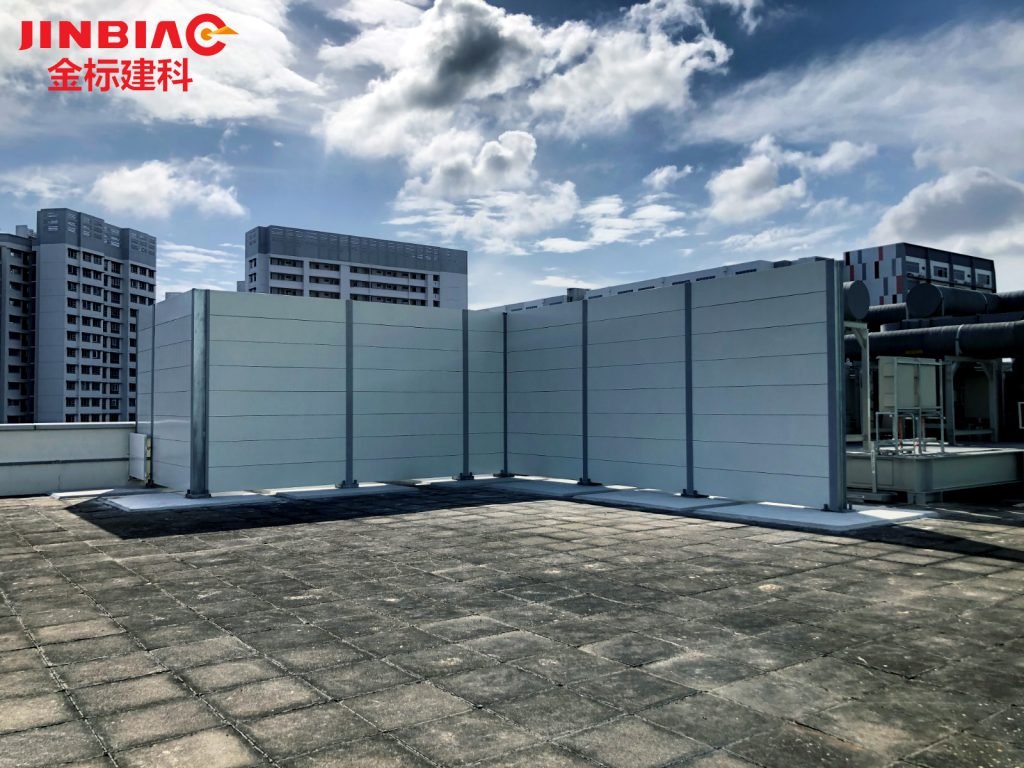
The need to use sound barriers in Singapore is usually overlooked when building or renovating a commercial or industrial space. Most builders focus on how the place is going to look, but not always how it would handle sound.
However, these days people are starting to consider how they should enjoy the acoustics of their abodes, and this includes mitigating noise within their space.
The government also has implemented strict regulations to reduce noise pollution caused by industrial and commercial buildings.
Commercial and industrial soundproofing comes in different forms and offer a great deal in creating an environment that’s conducive to productivity, accurate and effective communication, and as well as privacy. Regardless of the industry, focusing on the need to factor in the property’s sonic landscape reaps benefits in the future.
How does industrial and commercial soundproofing work?
When a builder talks about soundproofing, they are usually talking about different types of sound country methods. In general, soundproofing refers to controlling the attributes of soundwaves in such a way that they provide the least negative impact to the people exposed to them.
In a commercial or industrial setting, techniques such as sound absorption and sound reflection, as well as controlling sound distribution, are used.
The soundproofing needs of a commercial or industrial space depends on the kind of space. An office building will have a specific set of audio requirements compared to a factory or a cinema theatre.
Sound issues in industrial and commercial spaces
Controlling sound is very important, especially in industrial and commercial spaces. It is because these spaces are often exposed to a combination of persistent build-up of noise that come from different sources. Not being able to control this may reduce the overall value of the space since it becomes less desirable to work or do business in.
Some of the common issues in commercial and industrial spaces are:
- Sounds in theatres and cinemas should not compete with each other, and are expected to stay within the confines of their rooms;
- Meeting spaces need to maintain sound separation to ensure client confidentiality and avoid distraction from outside chatter.
- Buildings themselves generate noise, as they are used by different individuals and machineries. Structural noise needs to be kept at low levels, or prevented from reaching interior spaces.
- Persistent buzzing and rattling sounds can be a distraction and hinder business productivity. They get in the way of effective communication, and people within the space would have the tendency to raise their voices and experience stress afterwards.
Businesses that profit from sound barriers
While the soundproofing needs of every business is unique, the approach to achieving their goal boils down to a few methods. All types of noise pollution can emerge in work and industrial spaces; thus, noise control proves to be essential.
Sound barriers in Singapore are ideal for business spaces situated in industrial complexes. They help separate noise and provide areas where people can talk and focus on their tasks without getting distracted by equipment and outdoor noise.
These barriers are also helpful in promoting environments conducive to social activities, such as parties, team-building activities, and other related events. Not only is outdoor noise kept to tolerable levels, but the quality of sound in the event is also improved for its audience to enjoy.
Hebei Jinbiao is a leading company in Noise Control products and Fencing products in Singapore. We guarantee to provide you with the most high-quality Noise Control and Fencing products along with our dedicated assistance. Do not hesitate to contact us. We are looking forward to helping you solve your noise issues and protect you from noise pollution.
